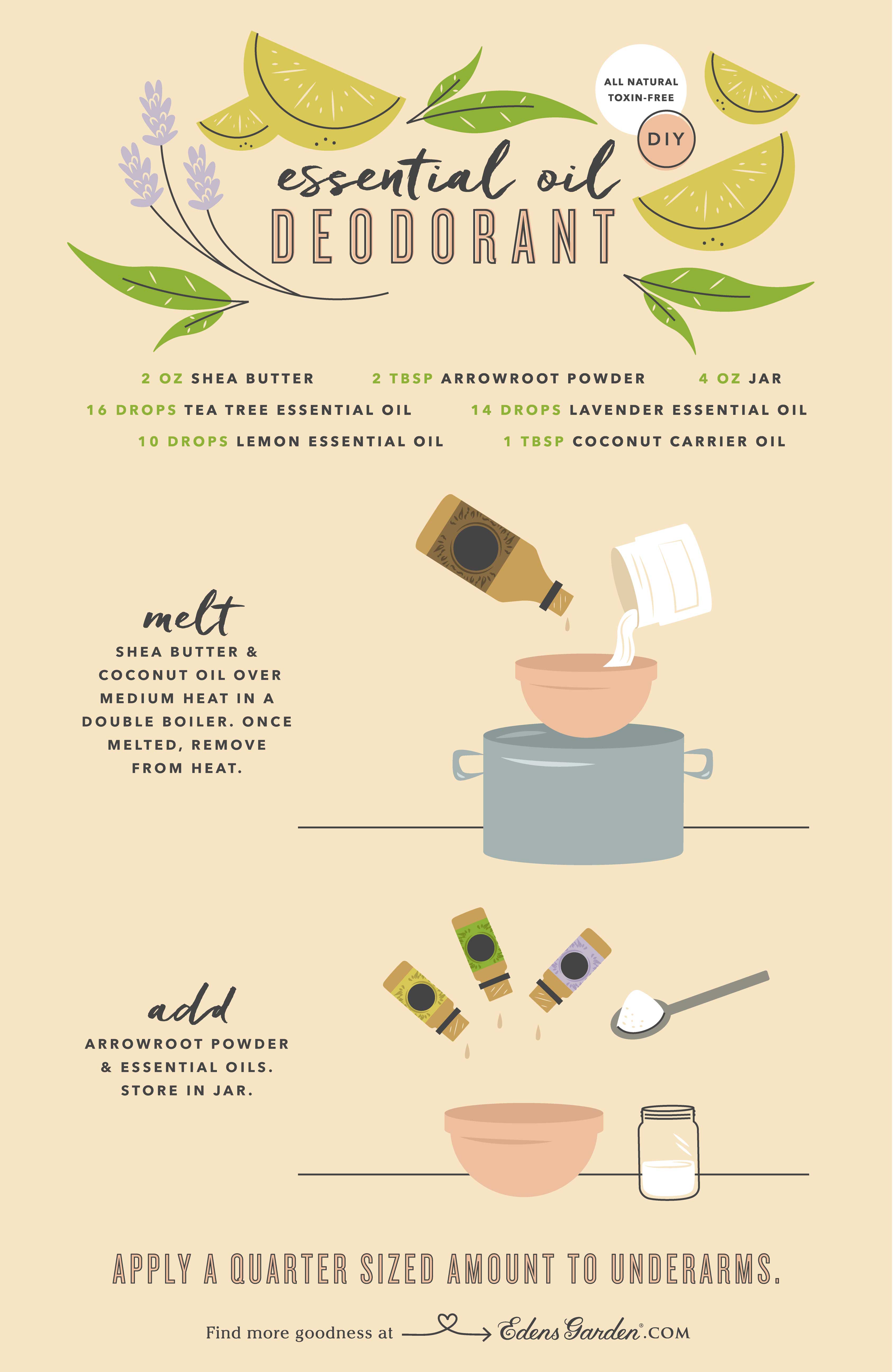Essential Oil Alternatives: Natural Deodorant DIY

Why do deodorants that smell good often stink for your health? Fragrances, triclosan, and preservatives may be to blame. And what about aluminum? Recently, the presence of aluminum in personal care products has raised some concerns, but the facts may surprise you.
Chemicals Of Concern
Triclosan, commonly used in deodorants, is an antimicrobial agent that kills underarm bacteria and reduces unwanted odor. Aluminum acts as an antiperspirant, plugging pores where sweat is dispersed.
In Canada and Japan, the use of triclosan in cosmetics is restricted and is coming under scrutiny in more countries. The Environmental Working Group maintains numerous scientific reports, purporting that triclosan is an endocrine disruptor, an irritant, a toxin to organs, an environmental toxin and may cause antibiotic resistance. EWG also specifically warns consumers to avoid products containing triclosan in their top tips for safer products. However, the FDA has remained neutral on the issue of triclosan in cosmetics, stating that studies showing triclosan reduced levels of thyroid hormones were performed on animals, meaning we cannot be sure if the same is true in humans.
Avoiding aluminum in deodorants may be something you started doing long ago, as rumors of aluminum causing breast cancer and Alzheimer’s disease has spread far and wide. The EWG lists aluminum powder as highly dangerous in cosmetics, though this is not typically the type of aluminum found in deodorants. Common types of aluminums used in antiperspirants include aluminum zirconium and aluminum chlorohydrate. Each of these aluminums are rated poorly to moderately hazardous by EWG. Scientists have found insufficient evidence to support the claim that aluminum causes Alzheimer’s disease and breast cancer. Until we can be certain that aluminum is safe in cosmetic use, you may want to continue avoiding the chemical.
The Natural Way
Essential oils of Tea Tree, Lavender and Lemon are all antimicrobials, and may reduce odors caused by bacteria on underarms. Shea butter and Coconut oil are each skin nourishing. When combined, these ingredients make for a natural, healthy alternative to store bought deodorants.
EG'S Essential Oil Deodorant DIY
Saying no to harmful chemicals doesn’t have to mean saying no to deodorant. Try this aluminum free deodorant recipe to stay fresh the natural way.
What You Need
2 oz Shea butter
2 Tbsp Arrowroot powder
1 Tbsp Coconut carrier oil
16 drops Tea Tree essential oil
14 drops Lavender essential oil
10 drops Lemon essential oil
4 oz Jar
How To
- In a double boiler, melt shea butter and Coconut oil over medium heat.
- Once melted, remove from heat and add arrowroot powder and essential oils.
- Pour into jar.
- For application, apply a quarter sized amount to underarms.
To read more about our GO CLEAN IN 2017 CHALLENGE, click here.








Leave a comment (Comments will be approved before showing up)